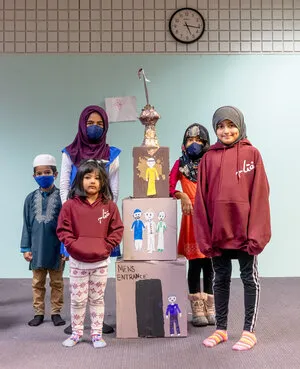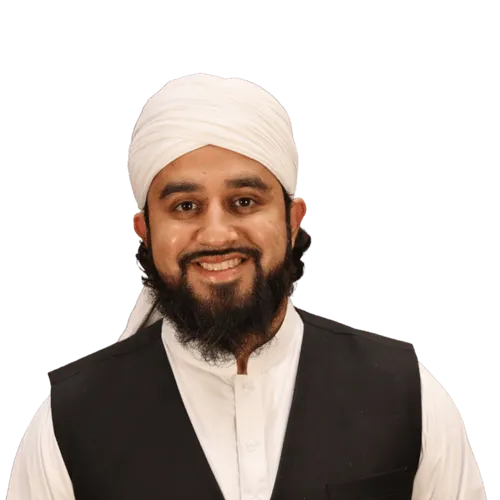What is the
Miftaah Seekers: Summer Edition?
We're excited to announce the Summer Edition of the Miftaah Seekers program! Like our yearlong Seekers program, we teach based in the sacred sciences, but the summer edition is designed to help the student connect to the world and the ideologies that surround them. We live in changing times, with many different new "ism's", but we as Muslims must nurture our conviction and connect with the world from the standpoint of the deen of Allah and His Messenger (SAW).
2025 Courses
summer semester
Schedule: Daily |10:00 AM EST
This class provides a deep dive into Surah al-Kahf, exploring its rich stories, timeless lessons, and spiritual insights. Students will examine the themes of faith, trials, knowledge, and the unseen, while learning how these stories are relevant to modern challenges, especially in an age of deception and materialism.
Objectives:
Analyze the four major stories in Surah al-Kahf and the lessons derived from each.
Understand the thematic connections and divine wisdom behind the structure of the surah.
Reflect on the relevance of Surah al-Kahf in protecting faith amidst contemporary trials.
Schedule: Daily | 10:45 AM EST
This course equips students with foundational tools to recognize and respond to common doubts about Islam. Grounded in classical scholarship and contemporary discourse, the class addresses ideological, theological, and moral misconceptions while strengthening conviction through clarity and confidence.
Objectives:
Identify the sources and nature of modern-day doubts related to Islam.
Learn reasoned and respectful methods of addressing and resolving common misconceptions.
Strengthen personal conviction through understanding key theological and philosophical responses.
Schedule: Daily | 11:30 AM EST
A study of Imam al-Ghazali’s spiritual manual, Bidayat al-Hidayah (The Beginning of Guidance), this class offers a structured path toward living a life of taqwa (God-consciousness). Covering daily routines, avoiding sins, and refining character, the course serves as a guide for those seeking to begin or renew their journey of self-purification.
Objectives:
Understand the foundational principles of spiritual development in Islam.
Apply daily disciplines and moral guidelines as outlined by Imam al-Ghazali.
Reflect on the relationship between outer practice and inner transformation.
Schedule: Daily | 12:30 PM EST
This class focuses on developing a deeper understanding of selected hadiths by analyzing their context, meaning, and application. Students will learn to appreciate the wisdom of the Prophet ﷺ and how his guidance shapes every aspect of a believer’s life.
Objectives:
Comprehend the meanings and lessons behind key hadiths studied in class.
Explore the context of the hadiths to gain a comprehensive understanding.
Apply the teachings of the Prophet ﷺ to contemporary personal and communal challenges.
Schedule: Daily |1:15 PM EST
This course delves into the legal rulings surrounding what is permissible (halal) and impermissible (haram) in Islam, especially in daily life matters like food, clothing, finance, and relationships. Students will gain clarity on how Islamic law preserves ethical living and spiritual purity.
Objectives:
Understand the principles and categories of halal, haram, and doubtful matters in fiqh.
Apply Islamic legal rulings to common ethical and lifestyle questions.
Cultivate a conscientious approach to daily decision-making rooted in Islamic law.
INtermediate
The Intermediate level is suited for students that are comfortable with reciting on their own and have memorized the last 10 Surahs from Juz Amma. Miftaah Talent will focus in this level on building and strengthening the pronunciation of letters and implementing proper Tajweed rules. Select Hadiths and duals will be reviewed to make a well-balanced student. At the end completion of this level, students will be comfortable at 60%fluency and articulating Tajweed in their recitation.
The following Surahs of the Quran will be reviewed:
Surah Al-Qari’ah/Quraysh
Surah Duha/Ma’un and Asr
Surah Aadiyaat/Humazah
Surah Zalzalah/Takathur
Surah Bayyinah/Duha
Surah Layl/Zalzalah
Surah Shams/Aadiyat
Surah Tariq/Qari’ah
Surah Alaa/Bayyinah
Surah Balad/Lay
lAyat ul Kursi/Shams
Surah Naba/Tariq
The following Hadiths will be explored:
Cleanliness
Sincerity
Learning Quran
Salah
Parents
Truthfulness
Good Character
Gratitude
Neighbors
Spying
Hatred
Mercy for Others
The following duas will be taught and memorized:
Wudu
Sleeping/Waking Up
Entering/Leaving the Home
Entering/Leaving the Masjid
Before/After Eating
Drinking Water
Drinking Milk
Wearing Clothes
Looking into the Mirror
When Traveling
Entering a Shopping Center
Durood Ibrahimiyyah
Advnaced
As the students progress in the program, students will continue to gain the necessary skills to beautify their voice and recitation of the Quran. At this level, students that enroll have a strong foundation in Tajweed but have a desire to improve their voice and performance. Stories of select companions are reviewed to provide scholarly role models for the kids. At the completion of this level and program, students will be able to recite with 100%fluency.
The following Surahs of the Quran will be reviewed:
Surah Shams
Surah Balad
Surah A'laa
Surah Tariq
Surah Burooj
Surah Naba
Surah Mulk
Surah Rahman
Surah Yaseen
Surah Mu'minun
Surah Noor
Surah Baqarah
The following stories will be explored:
Abu Bakr al-Siddiq (RA)
Umar bin Khattab (RA)
Uthman ibn Affan (RA)
Ali ibn Abi Ṭalib (RA)
Zubair ibn AL-Awwam (RA)
Talha ibn Ubaidullah (RA)
Abdul Rahman bin Auf (RA)
Abu Obaidah ibn Jarrah (RA)
Sa'ad ibn Abi Waqqas (RA)
Saeed ibn Zaid (RA)F
atimah ibn Muhammad (RA)
Aisha bin Abu Bakr (RA)
Program Schedule
June 20th, 2025
June 23rd, 2025
July 14 - 18th
August 8th, 2025
Program information
& Online
& Breakfast
Learn more
Not ready to enroll but want to learn more?
Download the program catalog to review program details.
.webp)
frequently
Asked
Questions

Classes will be held from 10:00 AM to 2:00 PM EST Monday through Thursday.

Yes, the Miftaah Summer Seekers Program will be available onsite at the Miftaah Campus and online via Zoom.

The program is open to students that are 17 and older.

Miftaah will provide course lifetime access to the student portal, including recordings, PowerPoints, and course material.

Miftaah will provide course lifetime access to the student portal, including recordings, PowerPoints, and course material.

Tuition payments may be made per semester.

Classes are held at the Miftaah Campus located at 11200 East 11 Mile, Warren, MI 48089 and online via Zoom.







-p-500.webp)



.webp)
